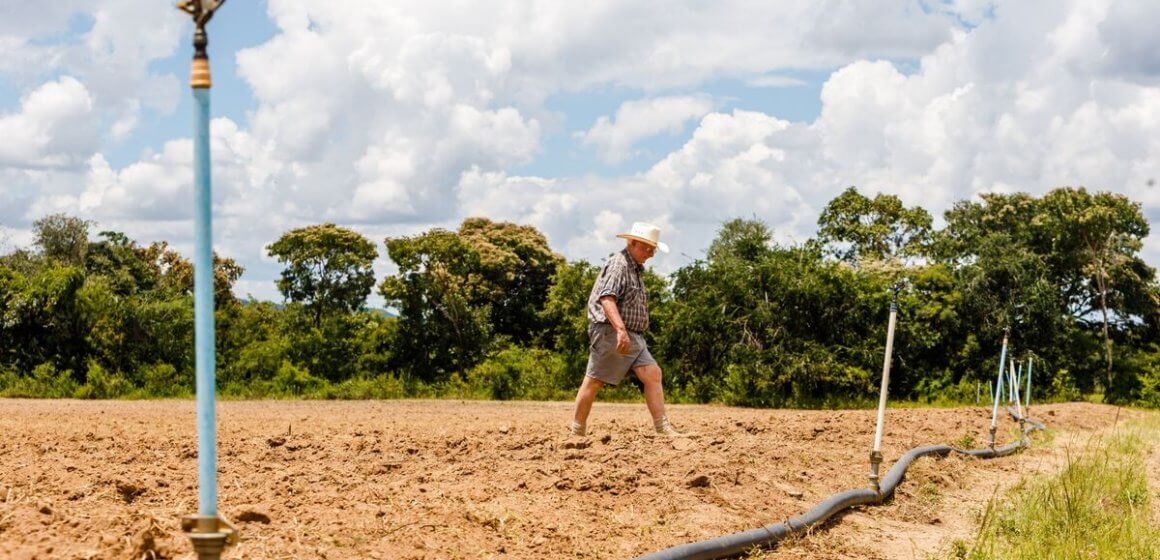|
LISTEN TO THIS THE AFRICANA VOICE ARTICLE NOW
Getting your Trinity Audio player ready...
|
The Zimbabwean government on Wednesday announced plans to compensate white farmers who lost their land and property in the controversial land seizures that took place over two decades ago. The seizures, carried out during the early 2000s under former President Robert Mugabe’s rule, were part of a broader effort to address colonial-era land imbalances but resulted in significant violence and upheaval.
The government, through Finance Minister Mthuli Ncube, revealed on Wednesday that it had approved 535 compensation claims worth a total of $548.2 million. Of this, $351.6 million will go to local white farmers, and $196.6 million will be distributed to foreign claimants from countries such as Denmark, Germany, the Netherlands, Switzerland, and other parts of Europe. The compensation, however, is not for the land itself but for the infrastructure and equipment the farmers had on the land, including wells, buildings, and irrigation systems. The land was considered to have been seized from Black Zimbabweans during colonial rule.
For local farmers, only $3.5 million will be paid in cash, representing just 1% of the total compensation amount. The remainder will be issued in treasury bonds. Foreign claimants will receive an initial $20 million, to be shared equally among 94 individuals.
The land reform program, initiated by Mugabe in 2000, sought to redistribute land from white minority farmers to landless Black Zimbabweans. While the intent was to redress historical wrongs from the colonial era, the program was often chaotic and violent, with veterans of the 1970s independence war leading mobs to forcibly remove white farmers from their properties. Approximately 4,000 white farmers lost their homes and land, and some farmers, along with their workers, were beaten, raped, or even killed in the process, according to reports from Human Rights Watch.
Mugabe defended the program as necessary to correct colonial injustices after Zimbabwe gained independence from white minority rule in 1980. However, the immediate effects were devastating to the country’s commercial farming sector, which had been a key source of food production and exports in the region.
The compensation deal announced by the Zimbabwean government is seen as a step toward addressing the long-standing issue.
However, it does not include payment for the land itself, a politically sensitive topic. Foreign claimants, under international agreements protecting foreign investments, will receive compensation for both land and infrastructure. The government has committed to making the payments in the last quarter of 2024.
Zimbabwe’s decision to compensate the farmers comes after prolonged negotiations with international creditors, led by the African Development Bank. Since 2022, the country has been attempting to restructure its $21 billion debt, with the compensation for white farmers being a key point of contention.
President Emmerson Mnangagwa, who took over from Mugabe following a popular coup in 2017, has sought to repair relations with the dispossessed white farmers. In 2020, his government signed a compensation deal with the affected farmers, and Mnangagwa has even encouraged some of them to apply for new land under the current system. However, all farmland in Zimbabwe is now state-owned, and those occupying it do so under government leases.
In a significant policy shift, the Zimbabwean government recently announced that beneficiaries of the land redistribution program could sell the land they acquired — but only to Black Zimbabweans. This move has sparked widespread criticism, as many of the beneficiaries were politically connected individuals who acquired multiple farms during the reform. Critics argue that allowing them to sell this land enables them to profit from a program originally intended to help the poor and landless.
The compensation plan is part of Mnangagwa’s broader strategy to rebuild Zimbabwe’s image and economy after years of isolation and financial distress. While the compensation is seen as a necessary step in healing the country’s historical wounds, many challenges remain in achieving full economic recovery and addressing the inequalities that persist.











LEAVE A COMMENT
You must be logged in to post a comment.